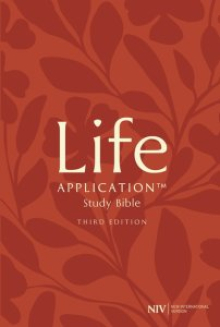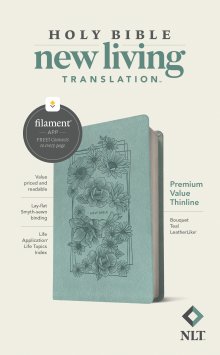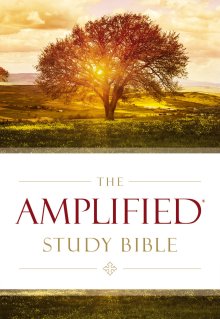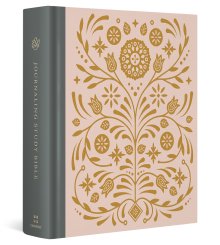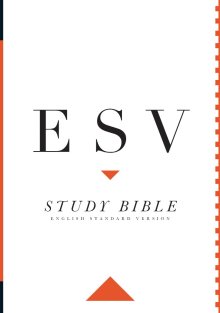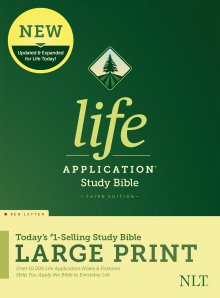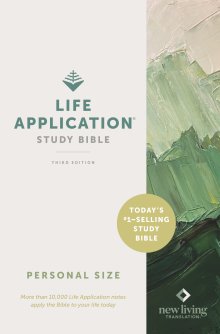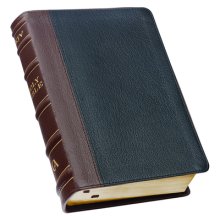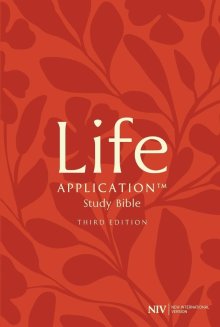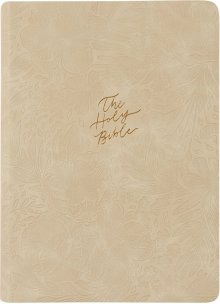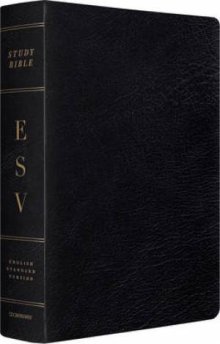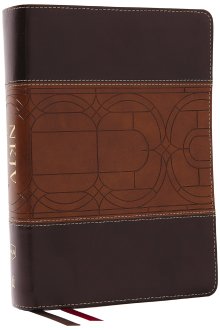What is a Study Bible? Your Top 10 Questions Answered (2026 Guide)
The Editor
Estimated Read Time: 5 Minutes

You've seen them on the shelves—those thick, impressive-looking Bibles packed with notes, maps, and diagrams. But what exactly is a Study Bible? Is it just for pastors and theologians? And do you really need one?
If you've ever felt a bit intimidated by the idea of a "Study Bible," you aren't alone. But the truth is, these Bibles are often the very best tool for a beginner.
To help you understand this powerful resource, we’ve answered the top 10 questions we hear from customers. By the end, you'll know exactly what a Study Bible is and whether it's the right next step for your faith.
In short:
A Study Bible differs from a regular Bible by including extensive human-written notes, commentary, maps, and cross-references alongside the biblical text to help explain the historical context, meaning, and application of the Scripture.
1. How is a Study Bible different from a regular Bible?
Think of a Regular Bible like a map. It gives you the landscape (the text of Scripture) exactly as it is. It’s perfect for reading and exploring on your own.
A Study Bible is like that same map, but with a tour guide standing next to you. As you read the text, you will see notes at the bottom of the page explaining:
- Context: Who wrote this book, when, and why?
- Meaning: What does this difficult word or phrase actually mean?
- Culture: What were the customs of the time?
The Bible text itself is exactly the same; the Study Bible just adds a layer of helpful explanation around it.
2. Are the notes and commentary "part of" the Bible?
This is a crucial question. No, they are not.
The biblical text (the Scripture at the top of the page) is the inspired Word of God. The study notes (usually at the bottom) are written by scholars, historians, and theologians. They are incredibly helpful tools, but they are human commentary designed to help you understand the inspired text. They are there to guide you, not to replace Scripture.
3. Who are Study Bibles for?
There is a common myth that Study Bibles are only for pastors or students. The opposite is true!
Study Bibles are fantastic for beginners. When you are new to the Bible, you have the most questions. Who is this King? Why did he do that? What does this prophecy mean? A Study Bible answers those questions right there on the page, saving you from getting stuck or confused.
4. What is the most popular Study Bible?
There are two titans in the world of Study Bibles:
- The NIV Study Bible: Known for its balanced, scholarly notes that explain the history and theology of the text.
- The Life Application Study Bible: The world's #1 bestseller. Its notes focus less on history and more on application—answering the question, "So what does this passage mean for my life today?"
5. What is a 'Cross-Reference'?
You will often see a column of small text in the margin of a Study Bible. These are cross-references. They act like hyperlinks. If a verse in the New Testament quotes a verse from the Old Testament, the cross-reference will tell you exactly where that quote came from, allowing you to "connect the dots" across the whole Bible.
6. What is a 'Concordance'?
A concordance is a mini-dictionary found at the very back of most Study Bibles. It lists common words (like "Love," "Faith," or "David") alphabetically and shows you where to find key verses containing those words. It’s invaluable when you're trying to find a specific verse but can only remember one or two words from it.
7. Which translation is best for a Study Bible?
The best translation is the one you will actually read! However, two philosophies work well for study:
- For Deep Accuracy: The ESV (English Standard Version) is a "word-for-word" translation. An ESV Study Bible is a powerhouse for those who want to study the precise wording of the text.
- For Clarity: The NIV (New International Version) or NLT (New Living Translation) are easier to read. An NIV Study Bible helps you grasp the big ideas quickly without getting bogged down in complex language.
8. Why are some Study Bibles so big and heavy?
Because they contain a lot of information! A typical Study Bible contains the full text of the Bible (already a long book) plus over 20,000 study notes, hundreds of maps, book introductions, and articles. That creates a thick book. If portability is key for you, look for a "Compact" or "Thinline" edition.
9. What is the difference between a 'Study Bible' and a 'Devotional Bible'?
- Study Bibles focus on the Head: They explain facts, history, context, and meaning.
- Devotional Bibles focus on the Heart: Instead of scholarly notes, they contain reflections, prayers, and encouraging articles designed to help you connect with God emotionally and spiritually.
10. Where can I see all the options?
The best way to understand the differences is to see them for yourself. Whether you want the practical wisdom of the Life Application series or the scholarly depth of the ESV Study Bible, you can find them all in one place.
Ready to find the perfect Bible for your needs? Our Bible Finder tool is designed to help you discover the ideal Bible for your study, and you can browse our full collection of Study Bibles here.
Still not sure which Bible is right for you? You can learn more in our complete, free 97-page ebook, 'How to Choose Your Bible'.
Latest Blogs
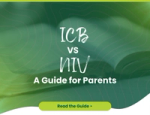
ICB
ICB vs. NIV: Key Differences Explained for Parents
Choosing a Bible for your child often comes down to two main contenders: the International Children's Bible (ICB) and the New International Version (NIV).
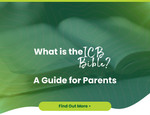
ICB
What is the ICB Bible? A Parent's Guide to the International Children's Bible
What is the ICB Bible? A Parent's Guide to the International Children's Bible If you are shopping for a Bible for a child aged 6 to 12, you will frequently see the acronym ICB. But what exactly is it? Is it a paraphrase? A storybook? Or a watered-down version of an adult text?

ICB
What is the History of the ICB?
When you open an International Children’s Bible (ICB), you notice something immediately: the sentences are short, the vocabulary is simple, and the "churchy" language is gone. It reads like a book a 7-year-old would actually pick up. But did you know that this beloved children's translation didn’t actually start as a Bible for children at all? The history of the ICB is a fascinating journey that began with a mission to help the deaf community and evolved into one of the most trusted Bible translations for kids in the world. Here is the story behind the ICB.

Lent
Our Guide to the New Lent Bible Study Guides and Courses for 2026
Our guide to the new Lent Bible Study Guides and Courses for 2026. This year, Lent starts on the 18th February until 2nd April 2026. Life is often busy, noisy and at times can even be a little chaotic. Lent is the perfect time to slow down and spend quality time with God in this season of reflection during the run up to Easter Sunday.

Bible
So Your Teen Wants a Bible? A Parent’s Guide to the 2026 Revival
Has your teen or grandchild asked for a Bible? Don't panic. The "Bible Revival" is real, but buying the right edition is key. Here is our guide to buying a Bible they will actually read in 2026.

Bible
Why Young Men Are Returning to the Bible (And Where to Start)
A "quiet revolution" is seeing young men across the UK turn to Scripture in record numbers. We explore why the Bible is resonating with a generation seeking purpose, discipline, and truth in 2026.

